PoliticsNow: Juukan inquiry backs compensation and memorial for destroyed caves
Rio Tinto should negotiate a restitution package and the WA government should establish a memorial for destroyed Aboriginal heritage sites, a parliamentary inquiry has recommended.
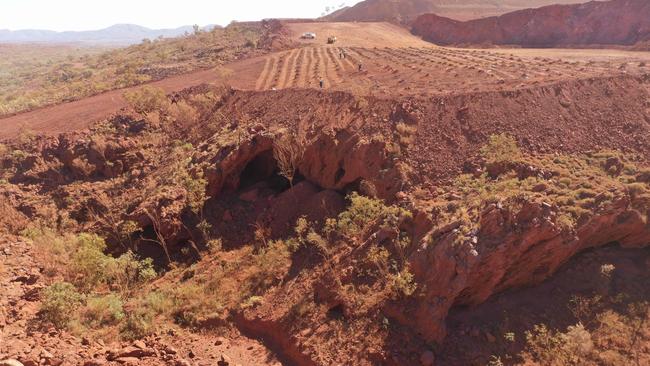
- China ‘suspends first, asks questions later’
- Outrage over Islamic foster care guide
- Tech giants forced into media deal
Welcome to live coverage of the latest headlines from Canberra, as well as updates on the nation’s response to the continuing coronavirus pandemic.
Attorney-General Christian Porter has unveiled the government’s workplace reform bill as Sally McManus says the changes would erode job security.
Australia’s $780m lamb export industry is being disrupted by inconsistencies from Beijing, as Simon Birmingham says all options are being considered to support exporters.
Richard Ferguson 9.25pm: Unis told to sign up to speech code
Federal Education Minister Dan Tehan says he is prepared to force universities to sign up to a model code on free speech and tie their funding to their progress defending academic freedom.
A government report into free speech revealed on Wednesday that only nine out of the nation’s 42 universities had fully embraced the academic freedom charter devised by former chief justice and University of Western Australia chancellor Robert French.
Mr Tehan is pushing universities to adopt the code voluntarily by the end of the year and publish an annual statement on what they have done to progress academic freedom. He said on Wednesday the government would go further if vice-chancellors continued to drag their heels.
Olivia Caisley 8.40pm: PM’s response too slow: Greens, Labor
Labor and the Greens have accused Scott Morrison of a slow response to the COVID-19 pandemic, a reluctance to embrace social-distancing measures and being dragged into taking stronger action by state governments.
A Labor and Greens-dominated Senate committee examining Australia’s response to the coronavirus unveiled its interim report late on Wednesday, arguing the Prime Minister “appeared reluctant to fully embrace social distancing measures”.
It also warned that Mr Morrison “confused the public with messages suggesting that things could carry on as normal.”
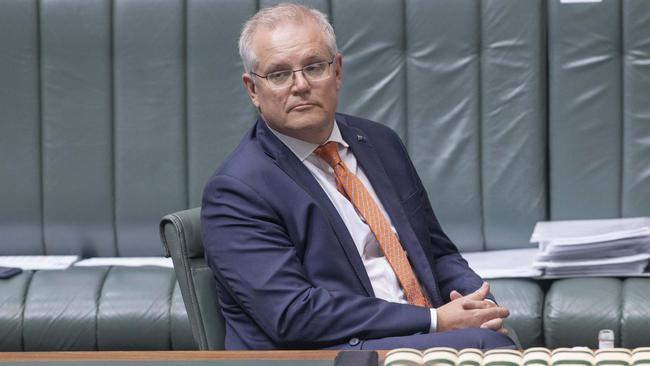
Paul Garvey 7.55pm: Inquiry backs Juukan restitution
Rio Tinto should negotiate a restitution package with the traditional owners of the destroyed Juukan Gorge caves and the Western Australian government should establish a permanent memorial for destroyed Aboriginal heritage sites, a parliamentary inquiry into the incident has recommended.
But the inquiry committee was divided over whether there should be a broader moratorium on the so-called Section 18 permissions that gave Rio Tinto the legal rights to destroy the caves, with Liberal senator Dean Smith warning that such a step could jeopardise jobs at a crucial time for the economy.
The interim report from the federal committee, tabled in parliament late on Wednesday, called for Rio Tinto to fund a full reconstruction of the shelters and commit to a permanent moratorium around the area.
The committee also recommended all mining companies in WA commit to independent reviews of their agreements with Indigenous groups and not exercise any rights to destroy other cultural sites until they are reassessed.
Rio Tinto’s detonation in May of the Juukan Gorge caves prompted an outcry from the Puutu Kunti Kurrama and Pinikura (PKKP) traditional owners and triggered a firestorm of global controversy that ultimately cost chief executive JS Jacques and two of his most senior executives their jobs.

The mining giant had secured legal approval for the destruction under WA’s Aboriginal Heritage Act, which was already under review by the WA government at the time.
A salvage excavation at the rocks shelters ahead of the detonation had recovered stones, animal bone fragments and ash from beneath the cave floor that showed the shelters had been inhabited as far back 46,000 years ago.
The corporate failures that led to the destruction of the rock shelters, the report said, were not unique to Rio Tinto.
“The committee has heard evidence of significant systemic issues across companies operating in Western Australia and nationally,” the report said.
“Similar to Rio Tinto, other mining companies have taken advantage of the inadequate protections in state and commonwealth laws for commercial advantage at the expense of cultural heritage and traditional owners.”
The report was highly critical of Rio Tinto’s conduct, noting it had made the deliberate decision to destroy the caves instead of choosing one of three other mine plans that avoided the area.
It had also failed to properly consult with the PKKP, lacked senior management oversight, and relied on “unfair” agreements and gag clauses.
“Collectively, these deficiencies represent more than just a series of ‘unfortunate mistakes’ or mere ineptitude by individuals,” the report said.
“Rio Tinto’s conduct reflects a corporate culture which prioritised commercial gain over the kind of meaningful engagement with traditional owners that should form a critical part of their social licence to operate.”
On top of paying an unspecified amount of restitution to the PKKP people and restoring the shelters, the company should fund “appropriate keeping places” for all artefacts and other PKKP materials currently held by the company.
Senator Smith said that while he and the committee would continue to work to hold Rio Tinto accountable, he disagreed with calls for a broader moratorium on Section 18 approvals, which he said were vital to development in WA.
“In these economic times, it is wrong to create uncertainty for the resource and mining industry, the pastoral and the other industries, and government agencies that use the Aboriginal Heritage Act 1972,” he said.
“It is a step too far, and its inclusion represents a sovereign risk.”
The report noted that the WA government had already drafted a new Aboriginal Cultural Heritage Bill that would replace the old act. It said the WA government should establish a permanent exhibition or memorial in the Western Australian Museum for destroyed cultural sites.
Committee chair Warren Entsch said multiple factors had contributed to the destruction.
“The PKKP faced a perfect storm, with no support or protection from anywhere,’ Mr Entsch said.
“They were let down by Rio Tinto, the Western Australian government, the Australian government, their own lawyers, and Native Title law.”
READ MORE: NGV back with a Triennial splash
AFP 7.10pm: China tests 250,000 people after new cluster
China has tested more than a quarter of a million people for the coronavirus after a handful of new cases were detected in the southern city of Chengdu.
An elderly couple were diagnosed as confirmed cases on Monday, and authorities have been tracing their close contacts and testing food samples.

Health officials said the virus was detected on food stored in their fridge and on a chopping board in their flat.
As of Tuesday 255,200 residents in the city had been swabbed for COVID-19 tests, the municipal health commission said, with six confirmed cases and one asymptomatic patient.
Schools and kindergartens in the Pidu district where the cases emerged have closed, according to local authorities, with students and teachers to quarantine and be tested for the virus.
Footage on state TV showed people in a park queueing up to be tested by health officials in hazmat suits.
China — where the virus first surfaced late last year — has largely brought domestic transmissions under control, with state media blaming recent clusters on imports of frozen food and other shipments.
The World Health Organisation says there is no evidence that people can catch COVID-19 from food or food packaging.
Almost a year after the virus first emerged in the central city of Wuhan, China is stepping up a campaign to question its origins.
A Tianjin health official said last month the city’s infections had been traced to imported cold chain products such as pig heads from North America, saying the virus strains found were similar to those in Europe and the US.
READ MORE: China widens trade stoush to timber, lamb
Richard Ferguson 6.25pm: Bill to split unions passes parliament
Scott Morrison’s new laws facilitating the voluntary break-up of mega unions like the CFMEU has passed parliament.
The Weekend Australian revealed Attorney-General Christian Porter would introduce legislation to permit disaffected divisions of an amalgamated union to vote to break away and form their own stand-alone union, taking their assets and members with them.
Labor ultimately supported the union break-up bill, which could see elements of the CFMEU — who wish to break from controversial Victorian construction union boss John Setka — now form their own unions.
Mr Porter said the energy and mining sections of the CFMEU were now free to break from Mr Setka, and credited the ALP for backing the bill on Wednesday.
“What this legislation does is to uphold the fundamental principle in Australia’s industrial laws of the right to freedom of association,” Mr Porter said in a statement.
“It means that decent, hard-working parts of an amalgamated union or employer body that are dissatisfied with the state of that bigger organisation will now have an opportunity to break away from it, if that is what a majority of their members want.
“This exact situation currently exists with the mining and energy division of the CFMMEU which no longer believes the interests of its members are being well served by its continued association with the likes of the union’s lawless construction division.
“To its credit, Labor supported this legislation which will enable the mining and energy division to take control of its own destiny and break free from the toxic elements of the CFMMEU.”
READ MORE: Bill Kelty approves of super-union ‘divorce’ move
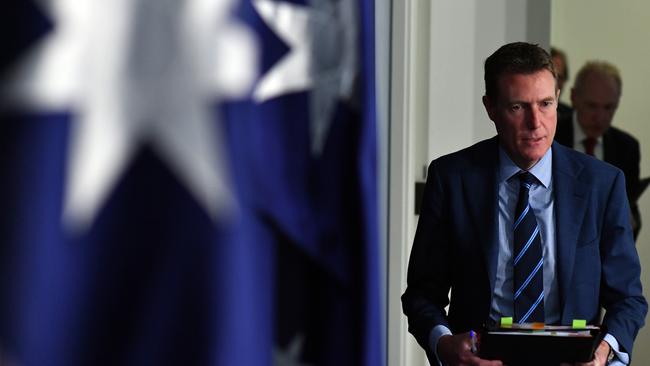
AFP 6.10pm: Trump fans urged to buy him childhood home
Donald Trump’s childhood home in New York — already sold twice since 2016 — is back on the market.
But this time, the real estate agency is appealing directly to the US President’s fans to buy the house for the unprecedented price of $US3m ($4m) and offer it to Trump as a gift.
Paramount Realty agency launched a fundraiser on the crowdfunding site GoFundMe on Wednesday (AEDT), calling on Trump fans to contribute towards the goal of reaching $US3m.
If the money is raised, the house will be given to the outgoing President. The agency had recently tried to sell the house, located in the affluent Jamaica Estates neighbourhood in New York’s Queens borough, for $US3m at classic auctions, but without success.
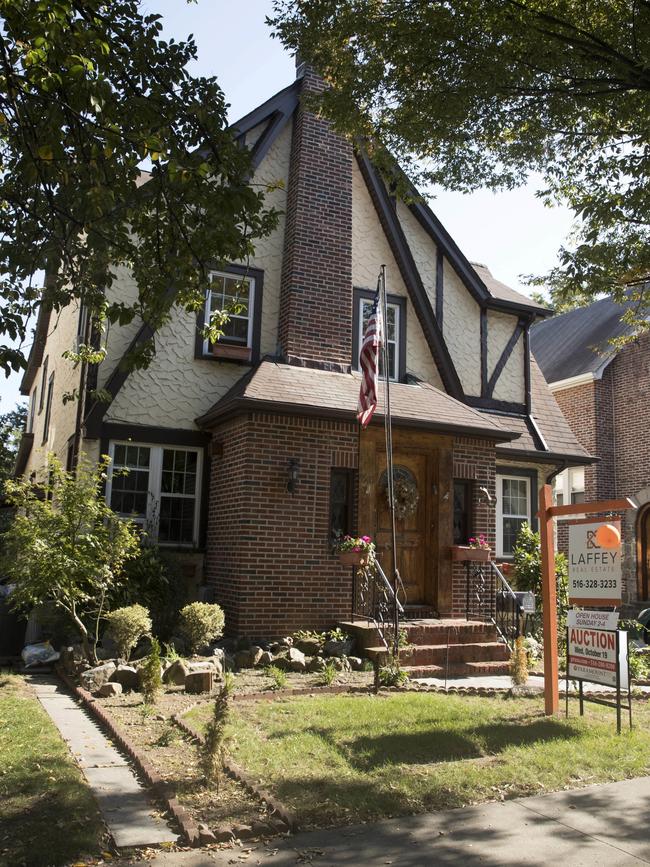
But then they came up with the crowdfunding strategy, which has “never been done before,” Paramount real estate agent Misha Haghani said.
“It is more likely that one million people who love Trump would each give three dollars, rather than a wealthy buyer giving three million,” he said.
Based on his real estate criteria, the mock Tudor five-bedroom, four-bathroom house — where Trump lived until age four, when he moved to a more affluent home nearby — is barely worth more than $US1m.
But its “intangible value” makes it “unique,” Haghani said.
The house was sold for $US2.14m in March 2017, shortly after Trump took office. And now that the former real estate mogul is about to leave the White House in January, buying the house is “almost like a thank you or a going away present for those who do love him,” Haghani explained.
The goal is to capitalise on the fervour sparked by the “polarising” leader, he said.
Trump, who changed his state of residence to Florida from New York in October last year, was not consulted for the house project, Haghani added.
Even if he no longer wants the house — though he said he would like to buy it when it went on sale in 2016 — his fans wouldn’t have invested for nothing: the GoFundMe page states the house would then go to a charity chosen by Trump.
And if he doesn’t choose a charity, “we will make a selection for him,” Haghani said.
Will Trump fans take the bait? Just after the GoFundMe went live, the fundraiser had received a single donation of $US45.
READ MORE: Trump cops another crushing legal loss
AFP 5.20pm: Japan weighs ships for missile defence system
Japan will build two ships equipped with Aegis missile interceptors after public opposition forced the government to scrap deployment of a costly land-based system, the country’s defence minister says.
Earlier this year, Japan decided to suspend unpopular plans to deploy the US-developed Aegis Ashore defence system in northeastern Akita and western Yamaguchi prefectures amid technical problems and swelling costs.

As an alternative, Defence Minister Nobuo Kishi told a ruling party meeting, the government hopes “to build two vessels equipped with the Aegis system”. Officials aim to win cabinet approval as early as next week, public broadcaster NHK reported on Wednesday.
The Prime Pinister’s top spokesman, Katsunobu Kato, later said the proposal “is aimed at establishing a system of defending the whole of Japan continuously with a ballistic missile defence system”. The Aegis Ashore purchase was approved in 2017, at an estimated cost of $US4.2bn ($5.6bn) over three decades. It is not immediately clear what the cost of a deployed system on ships will be.
The system’s purchase was seen both as part of attempts by Tokyo to bolster its defensive capabilities after successive North Korean missile launches but also as a way to foster closer ties with Washington under US President Donald Trump, who pushed allies to buy more American military equipment.
But Aegis has long been controversial in Japan, with opposition stemming not only from its expense but also from locals concerned about the risks posed by a missile defence system in their backyard.
Mr Kishi also on Wednesday announced that the ministry plans to upgrade the range of ground-to-ship guided missiles, allowing them to target threats from further distances.
“This upgrading is aimed at strengthening defence capability, but not aimed at obtaining a capacity to attack enemy territory,” Mr Kato said.
The distinction is key in Japan, whose pacifist post-war constitution strictly limits the country’s military to self-defence, leaving it heavily dependent on the US for security.
READ MORE: Fighter jets grounded after base drama
Adeshola Ore 4.35pm: Woolies chief backs IR reforms
The chief executive of Australia’s biggest supermarket retailer Woolworths says the federal government’s industrial relations package will encourage secure employment and certainty for employers.
The changes, which were unveiled today, have sparked backlash from unions and the Labor party who say it will cut workers’ take-home pay
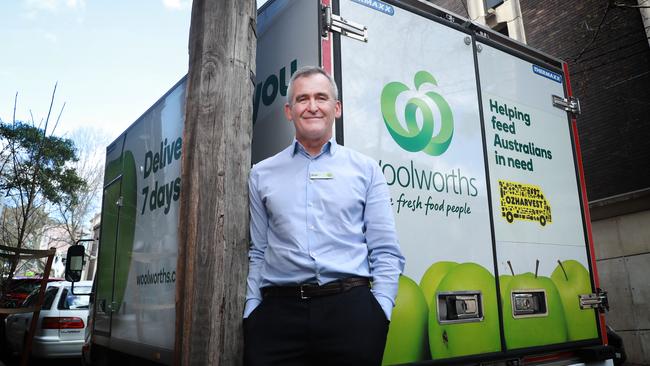
Woolworths Group chief executive Brad Banducci said he welcomed the reform and its “overarching focus on job creation”.
“The federal government has taken a balanced and pragmatic approach with a range of targeted and incremental changes to improve the system for workers and employers alike,” he said in a statement.
“It’s particularly pleasing to see a mix of measures that will both encourage more permanent, secure employment for workers and provide greater certainty for employers.”
Mr Banducci said the changes to enterprise bargaining agreements would help businesses negotiate improved conditions with their workers.
“The fast-tracking of enterprise agreements will help ensure that conditions voted up by workers can flow through much quicker than they do today,” he said.
“On casual workers, we welcome the clarity provided on the definition of who it includes.”
Read more: Woolies underpaid wages bill blows out to almost $500m
Adeshola Ore 4pm: ‘Heroes of the pandemic deserve’: Albanese
Labor has seized upon the federal government’s industrial relations reforms as a showdown over the proposed changes heats up.
The legislation, unveiled today, would give employers the power to bypass a key safeguard over pay and conditions under changes to enterprise bargaining laws. The Fair Work Commission would have greater ability to approve deals that do not comply with the Fair Work Act’s better-off-overall test.
Throughout question time, Labor MPs criticised the proposed law and said they would cut the take-home pay of Australians, particularly essential workers.
Scott Morrison hit back at the opposition, saying the government’s industrial relations reforms were “job-creating and job-keeping changes.”
The Prime Minister said the changes would ensure Australians could remain in jobs and return to work.
“We are seeking to do that in a way which allows those employees and their employers to be able to sit together and make agreements,” Mr Morrison said.
Anthony Albanese moved to suspend standing orders over what he described as Scott Morrison’s refusal to guarantee that no worker would be worse off under the government’s changes to exemptions for the better-off-overall test.

“The fact is that the heroes of the pandemic deserve better than this scrooge of a Prime Minister,” he said.
Mr Morrison rejected the assertion by Mr Albanese and told parliament the legislation would ensure workers could remain in jobs.
Industrial Relations Minister Christian Porter made a swipe at Mr Albanese’s leadership challenges and said the government was not changing the better-off-overall test.
“What you do find, Mr Speaker, is that there is an inverse relationship between leadership tensions and truth in question time.”
Read more: Industrial Reform may give weak Labor spark it needs
Adeshola Ore 3.16pm: Albanese moves to suspend standing orders over IR bill
Anthony Albanese has moved to suspend standing orders over what he described as Scott Morrison’s refusal to guarantee that no worker would be worse off under the government’s industrial relations changes.
During question time on Wednesday, the Opposition Leader made repeated assertions that the government’s industrial relations reforms would cut the pay of essential workers.
Nurses, supermarket workers, cleaners and every frontline worker has kept Australia going through the pandemic. How does Scott Morrison thank them? By giving them a pay cut.
— Anthony Albanese (@AlboMP) December 9, 2020
“The fact is that the heroes of the pandemic deserve better than this scrooge of a Prime Minister,” he said.
Mr Morrison rejected the assertion by Mr Albanese and told parliament the legislation would ensure workers could remain in jobs.
“The leader of the opposition is under a lot of pressure. I get it that he’s becoming more desperate by the day.”
Earlier, he told parliament that Labor’s argument that workers would be worse off under its workplace changes “simply wasn’t true.”
Rosie Lewis 2.50pm: Lambie to oppose cashless welfare card bill
Crossbench senator Jacqui Lambie has confirmed she will oppose the government’s bill to make four cashless debit card trial sites permanent, suggesting instead the scheme should be finished by mid-next year.
The Tasmanian senator said she had backed the card for years and had seen the promise and potential of the policy after visiting trial sites and speaking with people for and against the program.
But she said the card’s success depended on the support services available for participants and that was where the government had failed.
One way or another, the Cashless Debit Card's going to get voted on this week. When that happens, I'll be opposing it.
— Jacqui Lambie (@JacquiLambie) December 9, 2020
Here's why — pic.twitter.com/Yr0yVx1kDa
Senator Lambie said everyone on the card should be transitioned off it within six months and there should be no new participants in the interim.
“To prepare people for the exit of the card, you put in place genuine work training and placement services. You put in place genuine drug and alcohol rehab services. You put in place the sorts of things you need to fix the sorts of problems this card’s supposed to fix,” she said.
“If you don’t want to take the offer, fine. It’s all the more evidence that you’re not serious about making this work. The card’s a stick. You’re not giving them a carrot. You’re just hitting them. I didn’t sign up to that.”
One Nation, which controls two Senate votes, supports making the trials permanent and moving people in the Northern Territory and Cape York onto the card but the government is one vote short of passing its bill through parliament.
Independent South Australian senator Rex Patrick will likely be the deciding vote and said he was still finalising his position.
He has moved an amendment in the second reading debate asking the government to guarantee no age pensioners or veterans will be put on the card, with the exception of those who are referred by the Family Responsibility Commission, child protection workers, social workers or the NT’s Alcohol Mandatory Treatment Tribunal.
READ MORE: Suicide bill fails at final hurdle
Max Maddison 2.42pm: 41pc of Australians feeling financially stressed
With Christmas only weeks away, new data has revealed the financial and mental toll of COVID-19, with over a third of Australians feeling more stressed about their finances than last year, and concerned about how they’re going to afford the festive period.
Research conducted on behalf of The Salvation Army showed 41 per cent of Australians are feeling financially stressed, while the mental health implications of 2020 also have been laid bare.
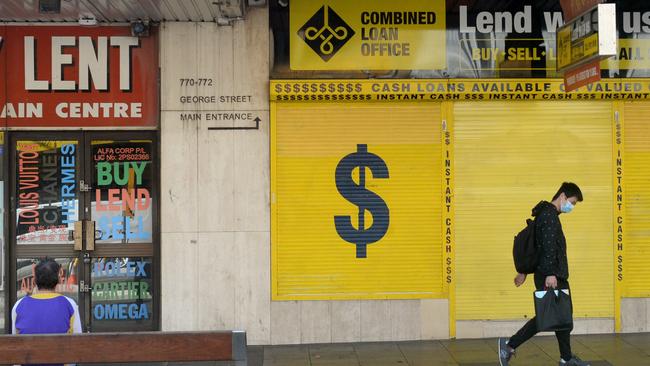
Compared to last year, almost a third of respondents were more anxious, 29 per cent were more lonely, while a quarter were more depressed. The survey data also highlighted significant concern about the ability to afford Christmas expenses.
Over a quarter of survey respondents are more concerned about being able to pay for Christmas expenses this year compared to 2019, with 23 per cent feeling pressure to spend more than they can afford this Christmas.
This meant a third of respondents would spend less on presents, one in four on family activities and 28 per cent would spend less on food. Six per cent of respondents said they would go without food this Christmas, while 15 per cent would forego presents altogether.
“It’s obvious that it has been a huge year, with many people really struggling financially and emotionally. We want to let people know that The Salvos are here for anyone who needs a hand this Christmas,” says Salvation Army Head of Public Relations Major Bruce Harmer.
READ MORE: Creighton — Unjustified lockdowns ‘whipped up fear’
Adeshola Ore 2.38pm: Bargaining code ‘boost for regional media’
Communications Minister Paul Fletcher says the government’s new media bargaining code is a boost for regional media outlets.
Mr Fletcher told parliament that regional journalism operations would benefit from revenue paid by tech giants under the framework.
“There is power for news media businesses to collectively bargain with Google and Facebook and we expect that may well be taken up by smaller news media businesses including those in regional Australia,” he said.
“There’s also a provision for Google and Facebook to make default offers which again we think may well produce outcomes for smaller news media businesses and regional news media businesses.”
The ABC has pledged to invest revenue raised from commercial deals with Google and Facebook into its regional journalism operations.
READ MORE: Editorial — Consumers the winners in Big Tech payment laws
Adeshola Ore 2.15pm: ‘Labor doesn’t understand economic challenges’
Scott Morrison says his government’s industrial relations reforms are “job-creating and job-keeping changes.”
Anthony Albanese told parliament that the federal government’s proposed legislation would cut the pay of essential workers who helped Australia survive COVID.
The Prime Minister said the changes would ensure Australians could remain in jobs and return to work.
“We are seeking to do that in a way which allows those employees and their employers to be able to sit together and make agreements,” Mr Morrison said.
“The leader of the Labor Party does not understand the nature of the economic challenges faced by Australia.”
The changes would give employers more power to bypass a key safeguard over pay and conditions under changes to enterprise bargaining laws. The Fair Work Commission would have greater ability to approve deals that do not comply with the Fair Work Act’s better-off-overall test.
READ MORE: Albrechtsen — Left’s unholy alliance with big end of town
Lilly Vitorovitch 1.39pm: Nine reportedly axes Chinese Communist Party supplement
Nine Entertainment has reportedly axed the publication of a paid monthly insert promoting the Chinese Community Party in its newspapers, including the Sydney Morning Herald and the Australian Financial Review.
Better late than never is a generous way of describing this… @9NewsAUS https://t.co/IUHulVl2Kw
— Chris Uhlmann (@CUhlmann) December 8, 2020
Nine News political editor Chris Uhlmann, who has written extensively about the creeping influence of the CCP in Australia, seemingly confirmed the media group’s decision in a post on social media platform Twitter on Wednesday.
In response to a report on the Guardian’s website that Nine had stopped publishing the eight-page insert called China Watch, Uhlmann said “better late than never is a generous way of describing this”.
A Nine spokesman declined to comment.
READ MORE: State stuck in slow lane on Belt and Road
Adeshola Ore 1.24pm: Albanese committed to workers pay, weighs IR bill
Anthony Albanese says Labor will examine details of the federal government’s industrial relations bill, but remain committed to ensuring workers do not face pay cuts.
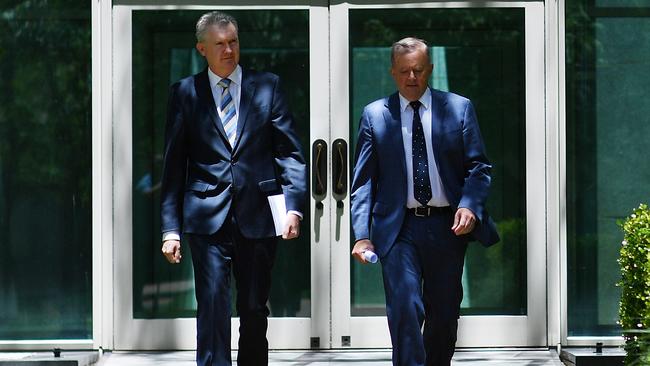
The proposed changes released today would allow employers to bypass a key safeguard over pay and conditions under changes to enterprise bargaining laws.
“This government has presided over stagnant wages since it came into government. It’s something that’s characterised it,” he said.
“Something that is also characterised by this government is that they never miss an opportunity to try and cut wages and conditions of working people and this is yet another example”
“The government could have included us in the process. They chose not to. They could have provided us with an advance of the legislation. They chose not to.”
He said the bill does not reflect the feedback from the government’s roundtable discussions with unions and employer groups.
READ MORE: Kelty approves of super union ‘divorce’ move
Will Glasgow 1.08pm: Two more states suffer China timber bans
Beijing has banned timber from two more Australian states and spread trade disruption to Australia’s $780m lamb export industry, as local farmers grumble about China’s inconsistent COVID restrictions.
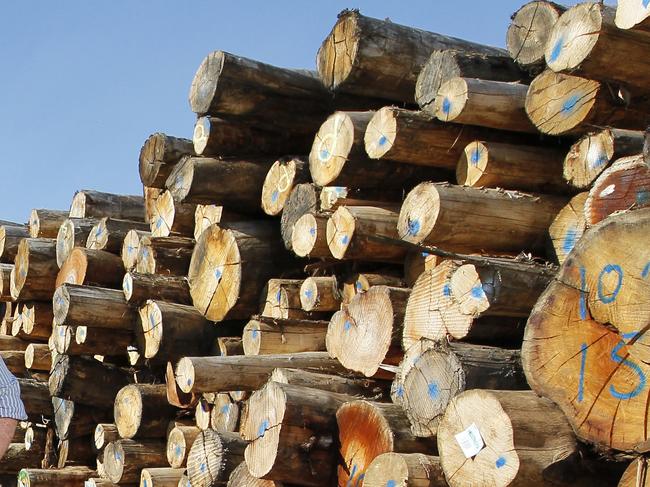
A notice by China’s customs officials said timber from Tasmania and South Australia were banned on Monday, as the Morrison government negotiated the passage of legislation that had angered Beijing.
“Recently, the customs of Shanghai, Ningbo, Xiamen, and Qingdao intercepted live forest pests from imported logs from Tasmania and South Australia,” said the notice from China’s Customs, announcing the ban.
“The relevant situation has been notified to the Australian authorities,” the notice said.
Meanwhile, two Victorian based lamb and sheepmeat exporters, the Australian Lamb Company and JBS Brooklyn, have had their licenses to export to China suspended for more than four months after they self-reported COVID-19 outbreaks.
READ the full story here
Adeshola Ore 1.00pm: ‘Better off’ test unacceptable, Labor says
Opposition industrial relations spokesman Tony Burke says the federal government’s modification of the better-off-overall test in its workplace reforms is unacceptable.
The laws would give the Fair Work Commission more ability to approve deals that do not comply with the Fair Work Act’s better-off-overall test. It would require the commission to take into account the impact of coronavirus on the business.
“There is no way we will accept a situation where workers are getting pay cuts,” he said.
He added that the bill did not specify that the business must be negatively affected by COVID to seek an exemption from the better-off-overall test.
“It doesn’t refer to turnover or anything like that. It just says there has to be an impact of the business,” he said.
He said the proposed changes include loopholes that could enable employers to avoid transitioning casual staff with regular work to a permanent position after a year.
“You can drive a truck through how easy it is to get out of that,” he said.
“If an employer was caught running foul of the rules there is no remedy because you only get arbitration if it’s by consent from the employer. How many vulnerable casuals do you honestly think will say to their boss, I’ll now take you to the Federal Court of Australia.”
READ MORE: PVO — IR may give weak Labor spark it needs
Adeshola Ore 12.28pm: Porter gears up for workplace showdown
Industrial Relations Minister Christian Porter says a measure in its workplace reforms that would enable employers to bypass the better-off-overall test would only be used in a small number of cases.
The legislation, which was unveiled this morning, would give the Fair Work Commission more ability to approve deals that do not comply with the Fair Work Act’s better-off-overall test. It would require the commission to take into account the impact of coronavirus on the business.
“I expect it would potentially be used in a small handful of occasions,” he said in Canberra.
“It’s meant to draw the Fair Work Commission’s attention and empower them to make an independent decision as the independent umpire in circumstances when a business thinks it needs to do something different in its EA to survive because of the impacts of COVID.”
Mr Porter said the exemption was time-limited and would only last for two years.
Mr Porter said the modification was not a “groundbreaking change” from the existing public interest test that allows the commission to approve non-compliance agreements in exceptional circumstances.
He said the provision would enable the Fair Work Commission to consider circumstances beyond a short-term crisis.
“There will be industries, like tourism operators on the Great Barrier reef, where this will not be a short-term crisis. This is going to be something they’ll potentially feel the effects for up to two years,” he said.
“We want to make it clear that this common sense exemption exists for COVID and for a period slightly longer than what can legally be considered a short-term crisis.”
READ MORE: Union backlashover over jobs shake-up
Adeshola Ore 12.00pm: McManus vows to fight work reform laws
ACTU secretary Sally McManus has vowed that the union will fight the federal government’s proposed industrial relations reforms.
The Morrison Governments omnibus IR bill: lower wages and less job security pic.twitter.com/QrpxyExkYn
— Sally McManus (@sallymcmanus) December 8, 2020
Under the changes, employers would be given more power to bypass a key safeguard over pay and conditions under changes to enterprise bargaining laws that have set up a showdown between the Coalition and unions. Industrial Relations Minister Christian Porter said the two-year time limit on such agreements would ensure workers were not disadvantaged.
Ms McManus said the changes would erode job security for Australian workers.
“We will fight as hard as we need to stop this,” she said in Canberra.
“We won’t stand by and watch workers lose rights.”
Ms McManus said the reforms did not include any measures to tackle wage stagnation that was a major issue prior to the pandemic.
Ben Packham 11.36am: Super Hornet crew forced to eject on takeoff
Defence has grounded 35 fighter jets after the crew of a F/A-18 Super Hornet was forced to eject from the aircraft on takeoff at Amberley air base near Brisbane on Tuesday.
The Chief of Air Force Mel Hupfeld said 24 Super Hornets and 11 EA-18G Growlers had been taken out of service until the cause of the incident was determined.
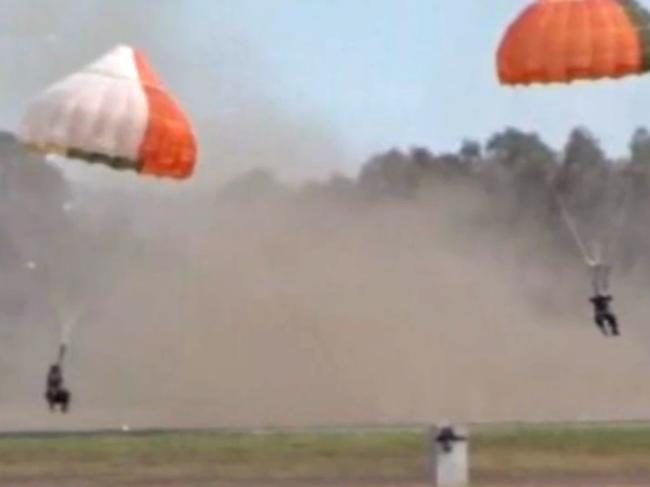
Air Marshal Hupfeld confirmed the pilot and weapons officer who ejected from the aircraft were well, and an investigation had been launched into the cause of the incident.
READ the full story on the F/A-18 Super Hornets here
Angelica Snowden 11.25am: Virus alert for Sydney’s south west
No new locally acquired cases of COVID-19 have been reported in NSW overnight.
There were two infections reported in returned overseas travellers and 13,970 tests were completed.
NSW Health has again urged residents in Sydney’s south west to get tested for COVID-19 if they have any symptom after sewage tests revealed fragments of the virus at the Liverpool sewage treatment plant.
NSW recorded no new locally acquired cases of COVID-19 in the 24 hours to 8pm last night.
— NSW Health (@NSWHealth) December 9, 2020
Two cases were reported in overseas travellers, bringing the total number of cases in NSW since the start of the pandemic to 4,433. pic.twitter.com/4KwpPOY68k
The health authority said they were still investigating the source of a recent infection reported in a hotel quarantine worker reported on December 3.
The worker is believed to have contracted a strain of COVID linked with the viral genome sequence originating in the US.
READ MORE: Season’s greetings were never so good
Adeshola Ore 11.13am: Labor has ‘deep anxiety’ about IR reforms
Deputy Labor leader Richard Marles says the opposition has “deep anxiety” about the government’s proposed industrial relations reforms which would give employers the power to bypass the Fair Work Act’s better-off-overall test.
Under the proposed changes, the Fair Work Commission will have greater ability to approve deals that do not comply with the Fair Work Act’s better-off-overall test.
“We’ve got deep anxiety about a set of laws where the government cannot guarantee that people won’t be worse off,” Mr Marles told Sky News.
“What we’re actually seeing in this legislation is an opportunity for employers to construct terms and conditions of employment which see people being worse off.”
The government’s proposal has been condemned by ACTU secretary Sally McManus who described it as the worst attack on workers since Work Choices.
READ MORE: Paul Kelly — In the year of Covid, we were unrivalled
Adeshola Ore 10.57am: Media code ‘in interests of all Australians’
The chief executive of one of Australia’s biggest media companies says the federal government’s news media bargaining code is in the best interests of all Australians.
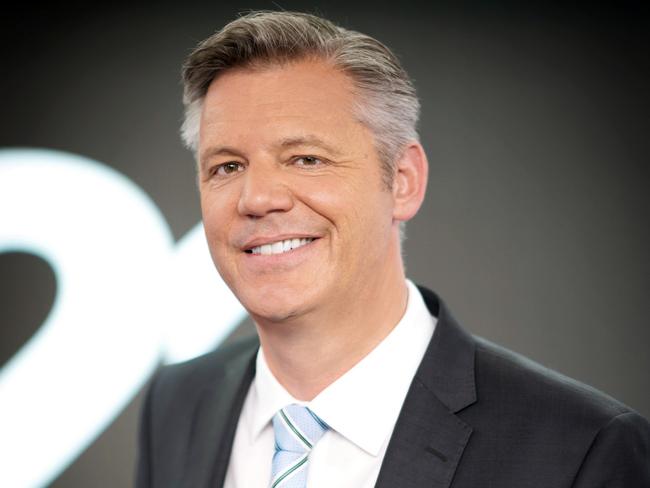
The proposal, which the federal government unveiled on Tuesday, will force Google and Facebook to pay for news content and share data collection methods with media companies and public broadcasters.
Seven West Media chief executive James Warburton said the Morrison government should be congratulated for the “pioneering and innovative” framework.
“It’s a sensible and fair proposal, as it should be. The revised code provides the concessions to the digital platforms that they have been asking for,” he said in a statement.
“There’s now no reason for Facebook or Google to be unwilling to negotiate fair agreements. Australians will be the winners under the code, with local media businesses that produce local news and content and support local jobs now provided with a pathway to a sustainable future.”
READ MORE: ‘Value of journalism recognised’
Will Glasgow 10.21am: China trade dispute spreads to lamb exports
Beijing’s trade disruption has spread to Australia’s $780m lamb export industry, as local farmers grumble about China’s inconsistent COVID restrictions.
Two Victorian based lamb and sheepmeat exporters, the Australian Lamb Company and JBS Brooklyn, have had their licenses to export to China suspended for more than four months after they self-reported COVID-19 outbreaks.

They remain suspended without any update from Chinese officials, despite Victoria notching up 40 consecutive days without any local coronavirus cases.
While the two Australian plants remain suspended, meat exports to China from the United States — the world’s coronavirus hotspot — have continued seemingly without interference.
“There’s one rule for the US and one rule for everyone else,” a farming source told The Australian, asking not to be identified because of the political sensitivities.
In January, China committed to increase its purchases of US agricultural goods by more than $14b to almost $50b in 2020 in a trade deal with the Trump administration.
Many local farmers fear pressure from the Trump administration over those commitments has contributed to China’s trade retaliation against Australian agricultural exports.
As well as the disruption of two of Australia’s biggest lamb exporters, China this week further squeezed Australia’s $2.8b beef export trade.
Other meat producers around the world have had their import licences restored after COVID related suspensions. That includes meatworks in coronavirus hotspots in South America and Europe.
By contrast, all eight producers in almost coronavirus free Australia remain suspended. Another 36 Australian meat establishments are still exporting to China.
Australia’s exports to its biggest customer have been buttressed by strong sales of iron ore, worth well over $80b annually at current prices, and its second biggest export to China, LNG.
Both commodities – key strategic resources for the world’s second biggest economy – have been unaffected by China’s trade relatalition.
READ the full lamb export story here
Adeshola Ore 10.03am: ‘All dispute settlement options considered on China’
Trade Minister Simon Birmingham says China’s targeted measures on Australian goods breaches its adherence to international trade rules.
China’s blocking of imports from a sixth Australian beef supplier is the latest in a surge of targeted trade measures.

China’s restrictions undermined the China-Australia free trade agreement and its obligations under World Trade Organisation rules, Senator Birmingham told the Senate this morning.
“The Australian government has become increasingly concerned about a series of disruptive and restrictive measures by the Chinese government on a wide range of goods,” he said.
“All WTO members are expected to conduct their trading relationships in a manner that is consistent with their international obligations.”
He said the federal government had raised concerns over China’s measures with the WTO regarding concerns with restrictions on a range of goods including barley, wine and meat.
Senator Birmingham said the Chinese’s government’s lack of engagement prevented the use of dialogue structures in the China-Australia free trade agreement being used.
He said Australia welcomed China’s economic growth that had lifted millions of people out of poverty.
“It underlines the mutual benefit that comes from trade. Australian businesses have capitalised on these opportunities,” he said.
He said Australia was committed to expanding trade opportunities in other markets.
“Australian businesses will continue to export to markets where Australian products and services are in demand, and where profits are highest relative to risks, including ongoing FDA agreements, implementing and updating existing FTAs and negotiating new FTAs.”
He said the government continued to work closely with exporters in order to maintain preferential market access to China “which has delivered such widespread gains to date, and we continue to raise issues of apparent potential, discriminatory actions targeted against Australia.
“The Australian government is considering all dispute settlement options in order to support our exporters and ensure they can compete on fair terms.’’
READ MORE: Last Post — Our beef with China and ways to settle it
Adeshola Ore 9.40am: Alleged war crimes ‘not fog of war incidents’
Defence Minister Linda Reynolds has disputed the claim that the alleged murders of 39 Afghans by Australian soldiers were “fog of war” incidents.
On Tuesday, prominent special forces veteran Heston Russell said some of the alleged murders of Afghans, including one captured on video, could have been “heat of battle” killings, contradicting a key finding of the Brereton war crimes inquiry.
“These allegations are not fog of war allegations. These are allegations made largely by our own defence personnel about conduct they saw, they witnessed and some of them participated in,” Senator Reynolds said in Canberra.
“These are allegations, not only allegations of war crimes, but clear observations about failures of leadership and command in how this circumstance was able to happen and happen for so long.”
READ MORE: Alleged murders in heat of battle, says veteran
Matthew Denholm 9.07am: Tasmania on alert with three virus cases
Tasmania has recorded three coronavirus cases in hotel quarantine.
The woman and her two children arrived in Hobart on a mercy flight from Delhi, India, on Sunday.
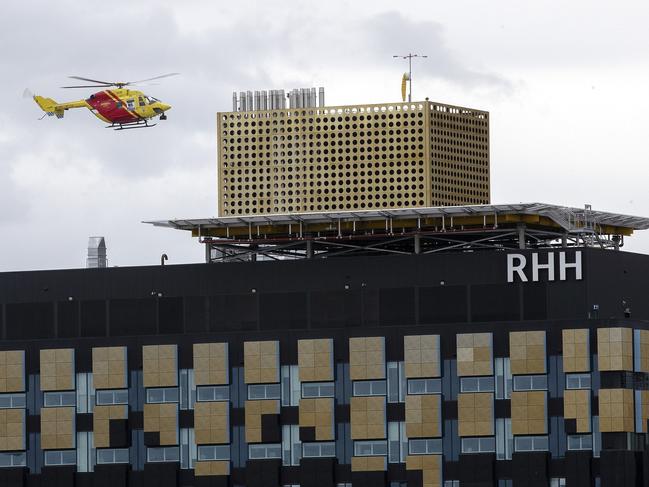
Premier Peter Gutwein said on Wednesday morning that the three were being moved by ambulance to the Royal Hobart Hospital for clinical assessment.
The woman had symptoms, but the two children did not. The woman’s husband had tested negative.
READ MORE: Sketch — End is nigh but there’s still blows to be landed
Adeshola Ore 9.01am: IR reforms will help business ‘grow way out of recession’
Industrial Relations Minister Christian Porter says “everyone is worse off” if businesses fail, as he spruiks the federal government’s industrial relations changes.
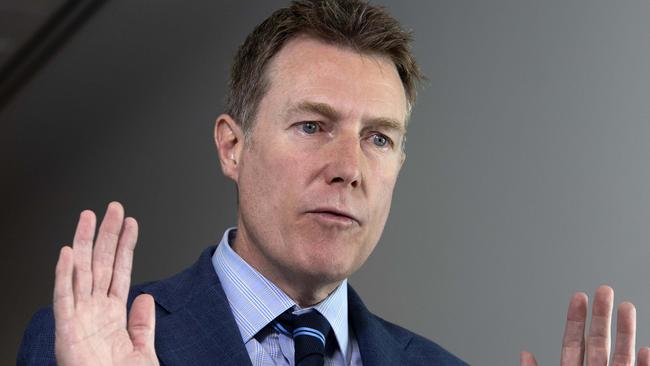
The proposals would give employers more power to bypass a key safeguard over pay and conditions under changes to enterprise bargaining laws, a measure that has sparked union backlash.
Mr Porter said the reforms would assist businesses “grow their way out of the COVID-19 recession.”
Leader of the House @cporterwa has moved to suspend standing orders to allow the Second Reading debate on the Fair Work (Registered Organisations) Amendment (Withdrawal from Amalgamations) Bill 2020 to occur later today. pic.twitter.com/ggopIXs5f1
— Australian House of Representatives (@AboutTheHouse) December 8, 2020
“All of these changes are designed to have more enterprise agreements where people get paid more than the award rates. That’s fixing a known problem in the system. A problem that everyone agrees exists.”
“At the moment there are too many enterprise agreements that are being turned over because of minor, technical or legal problems and we want to end that.”
Mr Porter said he rejected the suggestion by ACTU secretary Sally McManus that the changes would allow agreements to be reached that cut wages.
“This isn’t about pay cuts for people. This is about more jobs, more hours, more ability to move from casual to permanent employment,” he said.
READ MORE: Union backlash over jobs shake-up
Robert Gottliebsen 8.57am: Gas failure clouds Victoria’s renewables push
Canberra and five other states, plus many Victorians, scratch their heads trying to work out what the southern state is all about and why it has become so different to the rest of the nation.
For the moment let’s put aside ballooning debt plus the belt and road links between Victoria and China. Victoria is planning a different energy strategy to the commonwealth and most other states which it hopes will deliver employment and investment, plus reverse the COVID-19-sparked population exodus.
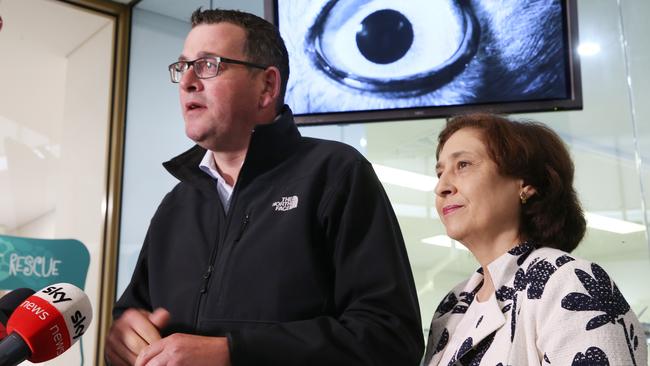
Victoria is intent on leading the nation in developing renewable energy and in particular is anxious to stay well ahead of NSW in the race for renewables leadership. If NSW tries to match it, the commonwealth energy targets will be irrelevant.
That race for renewables leadership generates part of the huge debt that Victoria is building up. And the quest so dominates Victorian strategies that it is prepared to allow significant parts of its community to suffer as the price for leadership on renewables.
This week I listened to the Victorian Minister for Energy, Environment and Climate Change, Lily D’Ambrosio, explain to journalists at the Melbourne Press Club how the Victorian strategy will work.
READ Robert Gottliebsen’s full story here
Adeshola Ore 8.34am: Media dispute resolution has 45-day time limit
Josh Frydenberg says the federal government will ensure the dispute resolution model in its new media bargaining code is a quick process.
The pioneering legislation would force Google and Facebook to pay for news content and share data collection methods with media companies and public broadcasters. If digital platforms were unable or unwilling to reach a commercial agreement, a final offer arbitration model, led by a panel of up to three, would decide on the terms of the commercial agreement.
The Treasurer said the legislation had a 45-day time limit for resolutions to be resolved.
“We’ll ensure that we can move quite quickly through this process but there’ll be a lot of work that’s done in preparation by the parties,” he told Sky News.
READ MORE: Tech firms’ advertising take still on the rise
Angelica Snowden 8.26am: Victorian authorities detained escaped traveller from Sydney
Authorised officers from the Victorian Department of Health and Human Services had to detain a returned overseas traveller in Melbourne after he boarded a flight from Sydney and skipped out on hotel quarantine in a second breach of strict COVID safety measures, it can be revealed.
It is understood the man claimed he was exempt from hotel quarantine, which sparked concern among airline staff in Melbourne. The incident occurred in July.
Officers from the DHHS met the traveller at his arrival gate and he was immediately detained and put into hotel quarantine.
But passengers on board the domestic flight were never informed about the breach — or their possible exposure to the virus — because the DHHS policy of quarantining secondary contacts did not come into force until October, three months after the fact.
The man returned negative results to COVID-19 tests.
The revelation comes after two German nationals managed to skip out on hotel quarantine in Sydney at the weekend and travelled straight to Melbourne on a domestic flight, where there were almost 200 passengers on board.
Although both travellers tested negative to coronavirus, the bungle sparked fear processes to prevent COVID-19 from entering the community via international travellers were not watertight.
A government spokeswoman said all international travellers who arrive in Melbourne are processed separately from domestic travellers.
“Our strict processes ensure international travellers cannot board another domestic flight in Victoria as we saw happen in NSW this weekend,” they said in a statement.
“No one arriving from an international flight into Melbourne will be allowed into the general areas of the airport. They will be kept separate at all times.”
READ MORE: Virgin slashes 737 MAX order
Rachel Baxendale 8.22am: Victoria still virus-free despite international arrivals
Victoria has recorded its 40th straight day with no new known cases of coronavirus, and its 16th day with no active cases.
Yesterday there were 0 new local cases and 0 new cases acquired overseas. No loss of life reported. 11,578 test results were received - thanks, #EveryTestHelps us to #StaySafeStayOpen.
— VicGovDHHS (@VicGovDHHS) December 8, 2020
More info: https://t.co/2vKbgKHFvv #COVID19Vic #COVID19VicData pic.twitter.com/hQI9HXTFIk
The numbers come after 11,578 tests were processed in the 24 hours to Wednesday, and despite six of Monday’s hotel quarantine arrivals showing symptoms of the virus.
READ MORE: Crisis far from over, PM warns
Adeshola Ore 8.10am: Google, Facebook consulted on media code
Communications Minister Paul Fletcher says the federal government’s new media bargaining code has taken into account feedback from tech giants.
The government will introduce legislation to parliament today that will force Google and Facebook to pay for news content and share data collection methods with media companies and public broadcasters.
“They’ve raised the question of giving notice of algorithm changes to Australian news businesses,” Mr Fletcher told the ABC.

“We’ve reduced the time period from 28 days to 14 days and we’ve restricted it to algorithm changes that are designed to change ranking of news material not the algorithm changes which happen all the time.”
“What we’ve sought to do is respond to issues they have raised. We’ve consulted carefully and I believe we’ve arrived at a workable code.”
Google and Facebook must meet minimum standards including giving 14 days’ notice to news businesses of algorithm changes and explain the types of data provided to media companies.
READ MORE: Durie — Time to talk as Google’s demands are met
Angelica Snowden 7.50am: Berejiklian: Quarantine bungles may happen again
Australia’s hotel quarantine system is not “foolproof” and future bungles could happen, NSW Premier Gladys Berejiklian says.
The comments came amid news of a second returned overseas traveller who escaped hotel quarantine in Sydney but was caught in Melbourne in July.
“We’ve got more than 5200 people in our hotel quarantine system and there is no doubt human error can play a part,” Ms Berejiklian told Sky News.
Victorian authorities have confirmed another traveler skipped hotel quarantine in Sydney before flying to Melbourne in July after he arrived from San Francisco.https://t.co/DuBrg7gQ6P
— Sky News Australia (@SkyNewsAust) December 8, 2020
“It’s not a foolproof system, I think we’ve managed it extremely well,” she said.
NSW has been doing the “heavy lifting” for the country and welcomes back at least 3000 Australians every week, Ms Berejiklian said.
“Unfortunately other states either haven’t been able to or are choosing not to do their fair share,” she said.
“Forty five per cent of everybody who comes through Sydney Airport lives in a different state outside of New South Wales and I appreciate the concerns that other states might have.
“I can’t … promise you there won’t be more mistakes in the future but what I can tell you is the volumes are enormous and I have always said it is a risk because we’ve seen what happened in Victoria.”
READ MORE: Season’s greetings were never so good
Angelica Snowden 7.30am: Berejiklian: cautious approach the safest
NSW Premier Gladys Berejiklian has welcomed news a COVID-19 vaccine is being rolled out in Britain, but says until everybody is immunised Australians have to live in a COVID safe way.
“I have to assume there won’t be a vaccine and we need to get used to living in a COVID safe way and even when the vaccine is first available it won’t be available to everybody.,” Ms Berejiklian told the Nine network’s Today Show.
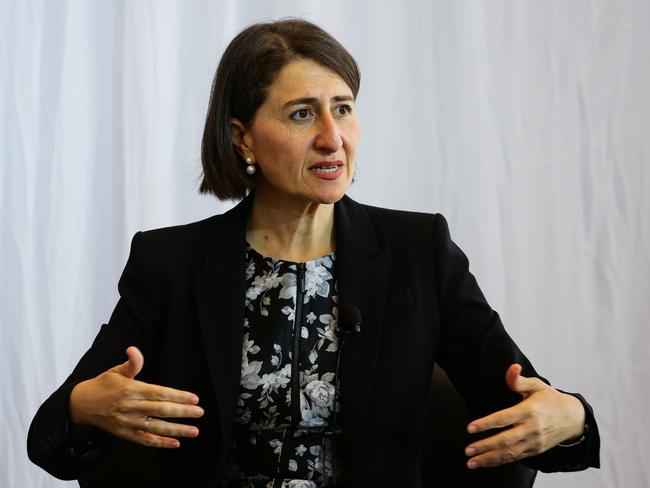
Ms Berejiklian said Australians could start the new year with more optimism and hope, but in the meantime everybody must keep 1.5 metres away from each other.
“There is no doubt our summer will be freer than what we have experienced in the last few months but we just need to make sure that we’re doing it in a safe way even when we go to the beach or park,” she said.
Amid news a ban on the cruise industry will be extended for three months until March, Ms Berejiklian said she backed the cautious approach.
“Don’t blame authority for taking a cautious approach to that,” she said.
“I do think it is better to be safe than sorry.”
READ MORE: Feast without piling on Christmas pounds
Angelica Snowden 7.10am: Switzerland locks down as cases rocket
The COVID-19 crisis in Switzerland is deepening after cases stabilised at a high level despite restrictions, as a German state looks to lockdown ahead of Christmas.
The Swiss government said it wanted to bring in new nationwide measures from Saturday, including a 7pm closing time for shops and restaurants – with total closure an option down the line if the situation did not improve rapidly.
“The epidemiological situation in Switzerland is noticeably deteriorating,” the government said in a statement.
“The number of infections is high and rising again, and the occupancy of intensive care beds remains very high.
“On average, 100 infected people infect more than 100 other people. This increases the number of cases again exponentially.”
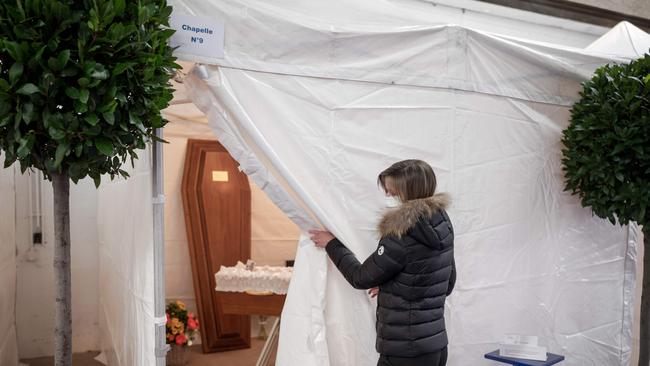
The government said it would meet on Friday to set standardised COVID-19 control measures across the country, to apply from Saturday until January 20.
It will propose restaurants, shops, markets and leisure facilities close at 7pm and remain shut on Sundays.
It will also propose five people from two households can gather for private events, with exceptions for celebrations for up to 10 people from December 24 to 26, and on December 31 for Christmas and New Year festivities.
Public events will be banned, with the exception of religious celebrations and legislative meetings.
Switzerland, with a population of 8.6 million, has recorded more than 357,000 coronavirus infections and 5,000 deaths.
The World Health Organisation has reported 3258 new infections have been recorded in the country for the last three days.
Daily deaths reported also appear to have stabilised for the previous three days, with 58 deaths on December 6 and 7 and 59 on December 8.
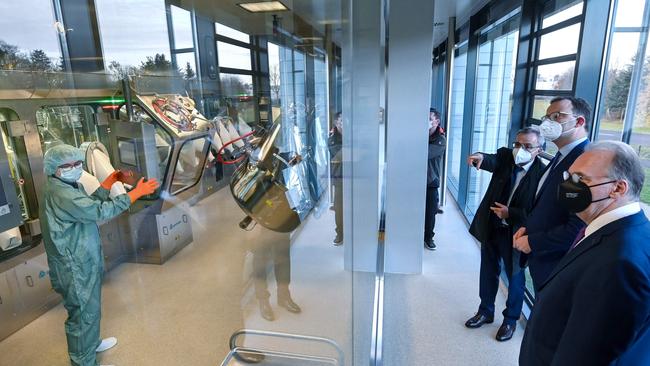
The eastern German state of Saxony, which has a COVID incidence rate more than twice that of the national average, will from Monday impose drastic measures to curb the spread of COVID.
“The situation in hospitals are not only tense, but extremely dangerous,” Saxony state premier Michael Kretschmer said on Tuesday, warning that in some hospitals, intensive care wards were already full.
The state has reported an incidence rate of 319 cases per 100,000 people in the last seven days – more than twice that of the national average at 147.
The situation is even more severe in some towns within the state – in Bautzen for instance, the infection rate is above 500 cases per 100,000.
Chancellor Angela Merkel’s government has repeatedly said that numbers need to be brought down to 50 per 100,000 people in order for officials to effectively carry out their trace and isolate strategy.
Schools will close, as well as shops selling non-essential items. Visits to elderly care homes will also be tightly controlled, with negative tests and masks required.
More than 20.5 million infections have now been recorded in Europe since the start of the pandemic.
More than 450,000 deaths have been reported in the region.
READ MORE: UK aiming to ‘mix and match’ jabs
Angelica Snowden 6.55am: Second traveller avoided quarantine for Melbourne flight
Another case of an overseas traveller escaping hotel quarantine in Sydney and flying straight to Melbourne in July has been revealed.
It came after two German nationals breached hotel quarantine in Sydney at the weekend and boarded a domestic flight to Melbourne.
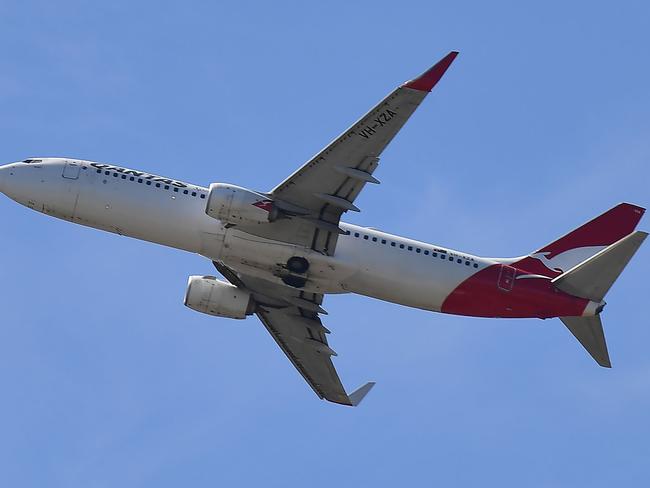
The pair – who have both tested negative to COVID – were identified by staff at Melbourne airport and made to complete their quarantine in Melbourne.
In the latest case to be identified, airline staff in Melbourne identified the breach and detained the man until authorised Victorian department of health and human services officers placed him into hotel quarantine, Nine newspaper reported.
Although the man tested negative to COVID-19 on day three and day nine of quarantine, DHHS said it did not alert other passengers on his domestic flight because it was not policy at the time.
The incident occurred on July 14 amid a devastating second wave of the pandemic in Victoria.
A DHHS spokesman said the “practice of quarantining secondary contacts as a precautionary measure” only began in October, three months after the incident.
“We now contact trace both primary close and secondary close contacts,” he said.
READ MORE: Business confidence bounces back
Anne Barrowclough 6.50am: Second White House lawyer tests positive
Amid fears of another coronavirus cluster in the White House, a lawyer who works with Rudy Giuliani has tested positive.
After Donald Trump’s personal lawyer tested positive on Monday, Jenna Ellis, who is also leading Mr Trump’s efforts to overturn the result of the election, also contracted the virus, US media reports.
CNN reports that a White House source said aides had been informedof the news, but that Ms Ellis had not been forthright with White House officials about it.
Axios first reported that Ellis had tested positive.
The lawyer, who does not wear a mask in the White House, reportedly attended a Christmas party for senior staff on Friday,
Mr Giuliani and Ms Ellis have frequently appeared massless while travelling the country in recent weeks to advance Mr Trump’s increasingly forlorn cause.
READ MORE: Trump hits out at ‘third world’ America
Jacquelin Magnay 6.10am: AstraZeneca vaccine ‘safe’ after trial pause
Australia’s main coronavirus vaccine hopeful, the Oxford AstraZeneca vaccine, has been shown to be safe and effective, overcoming an “adverse event’’ that caused a pause in the trial, a peer review released on Tuesday reveals.
After analysing the data, which is before the UK regulatory body to obtain approval, researchers reported in The Lancet that the Oxford vaccine is safe and effective and as well as reducing the spread of coronavirus it can protect against illness and death.
The review shows that the vaccine is most effective in a two jab regime, but with the first dose half strength. This particular regime was 90 per cent effective, compared to 62 per cent efficacious in volunteers given two doses at full strength.
Oxford AstraZeneca will shortly apply for provisional registration on the Australian Register of Therapeutic Goods as well as other regulatory bodies around the world so that the vaccine can be distributed.
Once approval is given, 3.8m doses will be delivered to Australia in early 2021 and another 30 million doses will be manufactured in Australia by CSL.
Public confidence in the vaccine was rocked when the vaccine trial was briefly paused on September 9 because of an adverse event, which the review reveals was transverse myelitis or spinal inflammation suffered by a British volunteer receiving the booster jab.
At the time the Wellcome Trust director Jeremy Farrar said: When you’re studying tens of thousands of individuals and you’re following them for weeks and months afterwards, I’m afraid to say health issues do arise. When you’re following that many people there will be events, some of which would have happened anyway and some of which may or may not be linked to the trial itself.”
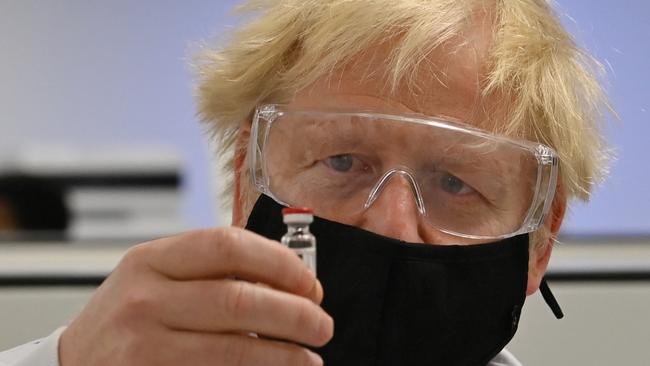
The Lancet says the independent neurological committee considered the most likely diagnosis of that adverse event to be of ‘’an idiopathic, short segment, spinal cord demyelination’’. This happens when the immune system mistakenly attacks and damages myelin in the spinal cord.
The Lancet review also reported two additional cases of transverse myelitis that were originally considered as potentially related to the vaccination but both were later determined by an independent committee of neurological experts to be unlikely to be related.
One case involved pre- existing, but previously unrecognised, multiple sclerosis while the second case was reported 68 days after receiving the placebo meningitis jab.
The Lancet said all trial participants have recovered, or are in a stable or improving condition.
There was another adverse event where a South African volunteer experienced very high fever before recovering which is still under investigation.
A volunteer who received the placebo of a meningitis jab was also reported to have suffered haemolytic anaemia.
The review shows there were 175 “events’’ across the vaccine and control groups but only the three were considered related to the vaccine or the control jab. In all 23,745 volunteers, many of them health care workers participated in four trials in the UK, Brazil and South Africa.
READ MORE: Maggie, 90, the first to get jab
Ben Packham 5.20am: For China, it’s ‘suspend first, asks questions later’
Trade Minister Simon Birmingham has accused Beijing of undermining the “letter and spirit” of the China-Australia free-trade agreement and its obligations under World Trade Organisation rules amid a surge in targeted sanctions against Australian exports.
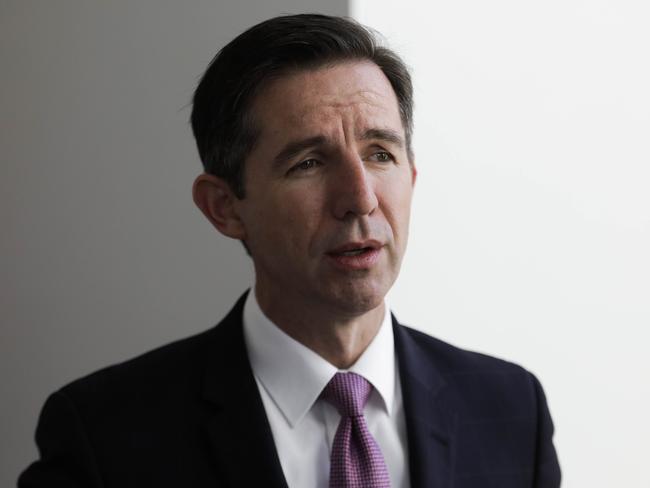
As Beijing blocked another Australian beef supplier, Senator Birmingham said China’s imposition of “disruptive and restrictive measures” on a wide range of Australian goods and services in recent months was in violation of the 2015 agreement.
China gave no reason on Tuesday for its suspension of exports from Queensland-based abattoir Meramist, leading to speculation it was linked to the passage of the government’s Foreign Relations Bill that would allow Canberra to rescind Victoria’s Belt and Road agreement.
China banned the family owned meat processor John Dee in late August, a day after Scott Morrison unveiled the proposed law. Australian Meat Industry Council chief executive Patrick Hutchinson said “normal dialogue” between Australian producers and their Chinese partners had “completely ceased”.
“It’s suspend first, ask questions later,” Mr Hutchinson said of the current approach by China.
Read the full story here.
Yoni Bashan 5am: Outrage over Islamic body’s guide to foster care
The nation’s peak Islamic body has been slammed over a set of guidelines issued to assist families with how to foster children, with child protection advocates claiming its positions are fundamentally at odds with Australian law and dangerously ambiguous on the subject of female genital mutilation.
The Australian National Imams Council released the 12-page policy document, titled Islamic Position on Foster Care, Adoption and Guardianship, in an attempt to answer questions and demystify the various religious teaching — but in doing so it has drawn ire over several instructions, in particular those relating to circumcision.
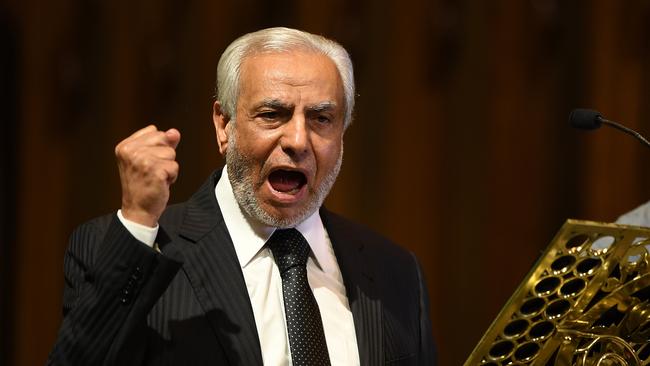
It says Islam prescribes circumcision “by way of obligation” for boys and should be conducted as early as possible, but adds that there is “no obligation for the circumcision of a girl”. Around Australia, female circumcision — usually termed female genital mutilation — is illegal.
“Many of the views outlined in this document do not reflect child safety best practice and I support the NSW government taking appropriate action to ensure all potential foster carers understand their role and responsibility,” Federal Assistant Minister for Children and Families Michelle Landry said.
Read the full story here.
Geoff Chambers 4.45am: Tech giants forced into Australian media deal
Google and Facebook will be forced to pay for news content and share data collection methods with media companies and public broadcasters, under world-first laws that will deliver funding lifelines for community, regional and national outlets.
Josh Frydenberg said the government’s mandatory news media bargaining code was designed to level the playing field and ensure the “rules of the digital world mirror the rules of the physical world”.
The Treasurer, who will put legislation into parliament on Wednesday giving him the authority to designate other companies under the code, including YouTube and Instagram, warned of the need to arrest a free-fall in traditional advertising revenue sparked by digital disruption.
Mr Frydenberg said for every $100 of online advertising spend, $53 went to Google, $28 to Facebook and $19 to other participants. “This is a huge reform. This is a world first and the world is watching what happens here in Australia,” the Treasurer said.
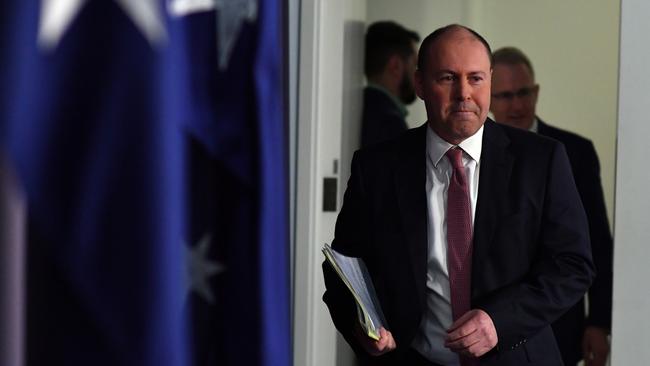
Read the full story here.




To join the conversation, please log in. Don't have an account? Register
Join the conversation, you are commenting as Logout